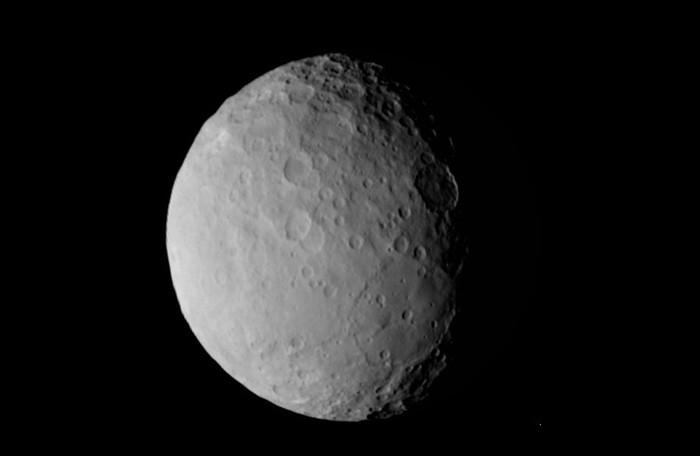Ceres Live Stream: Watch Nasa's Dawn arriving at dwarf planet broadcast online

Nasa's Dawn spacecraft is set to arrive at the dwarf planet Ceres and a livestream of the event will be broadcast online from the Slooh telescope.
Will Gater, from Slooh, will be hosting the event, which begins at 6pm GMT/UTC, 10am PST and 1pm EST. Speaking about the event, he said: "Few astronomical events are as exciting as seeing a world up-close for the very first time; with Dawn's imminent arrival at Ceres that's exactly what we've got to look forward to over the coming days, weeks and months.
"The mission should tell us a great deal about the history and composition of this enigmatic dwarf planet. And, as we've seen with those mysterious bright 'spots', there will always be thrilling surprises to investigate along the way. I can't wait to see what Dawn will show us!"
The livestream will observe Dawn beginning its orbit of Ceres, with astronomer Bob Berman discussing the mission throughout.
Nasa confirmed Dawn had entered Ceres orbit earlier today. It has taken seven-and-a-half years to reach its destination, between Mars and Jupiter. Ceres is the largest object in the asteroid belt between the two planets.
Ceres is the first of the dwarf planets ever to be visited by a spacecraft, and scientists hope it will help tell us about the origins of the Solar System.
At its closest approach, Dawn will be 40,000km (25,000 miles) from Ceres.
Robert Mase, project manager for the Dawn mission at NASA's Jet Propulsion Laboratory in Pasadena, California, said: "Dawn is about to make history. Our team is ready and eager to find out what Ceres has in store for us."
Jim Green, director of NASA's Planetary Science Division at the agency's Headquarters in Washington, said: "Studying Ceres allows us to do historical research in space, opening a window into the earliest chapter in the history of our solar system. Data returned from Dawn could contribute significant breakthroughs in our understanding of how the solar system formed."
© Copyright IBTimes 2025. All rights reserved.






















